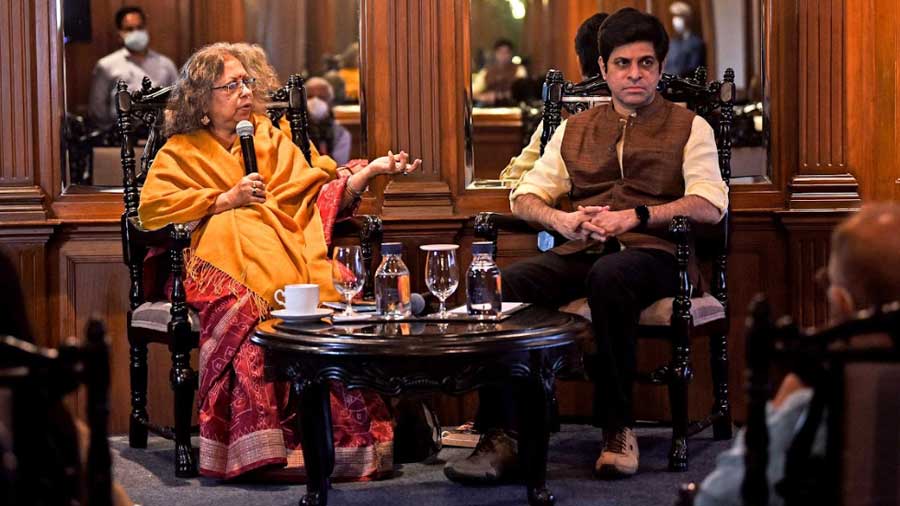India’s fascination with Adolf Hitler shows no signs of abating, with Mein Kampf continuing to feature on our bestseller lists even today, more than 95 years after its publication.
Yet, such popularity can be attributed to a few basic misconceptions, which over the years, have been imprinted on the public psyche. Key among these notions is the one which suggests that since Hitler fought against the British during World War II, he must have been in favour of the Indian struggle for Independence. The reality, however, is very different.
“We would all imagine that India was somewhere at the edge of Hitler’s political consciousness. Surprisingly... right through his totally controversial political and military career… he is time and again talking about India,” pointed out Vaibhav Purandare as he discussed his book Hitler and India at a session of An Author’s Afternoon on Tuesday, organised by Prabha Khaitan Foundation in association with Shree Cement and Taj Bengal, with digital partner The Telegraph Online-My Kolkata.
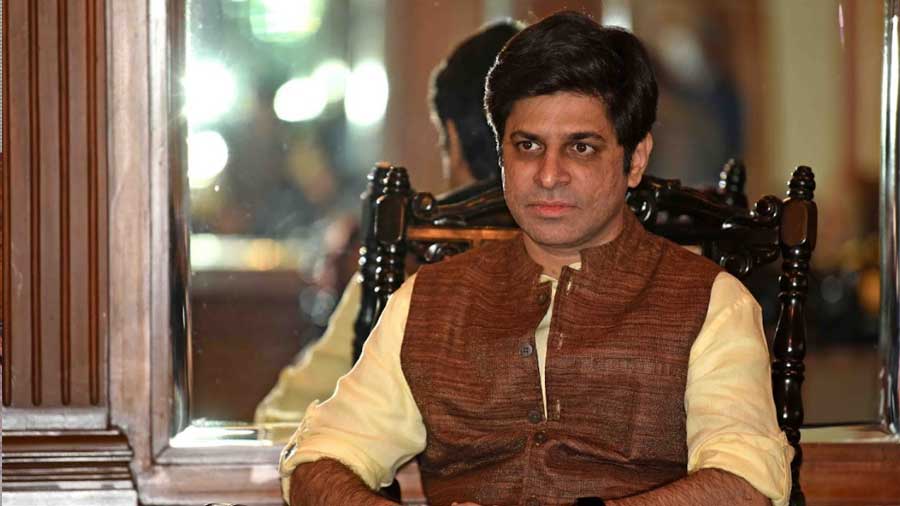
Vaibhav Purandare Amit Datta
Purandare, a senior journalist and author of titles like Savarkar: The True Story of the Father of Hindutva and Sachin Tendulkar: A Definitive Biography, was in conversation with fellow journalist and author Ratnottama Sengupta. “I scratched my head to find reasons why Hitler would be of interest to a 21st-century Indian...”, laughed Sengupta, before asking the author about why he chose this subject for his latest book.
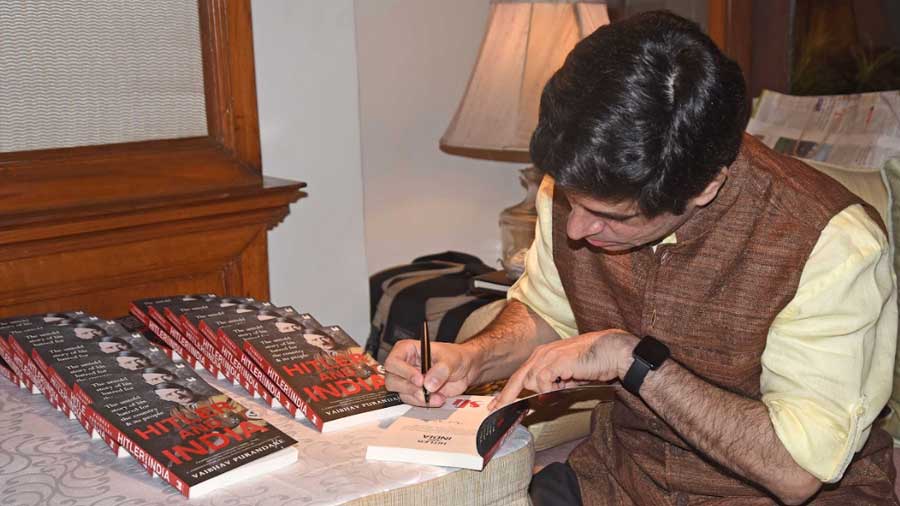
Vaibhav Purandare signs copies of his book, 'Hitler and India' Amit Datta
Purandare’s curiosity about Hitler’s views on India stemmed from his reading of the Mein Kampf. “The passage about India in Hitler’s autobiography is completely anti-India... He goes to the extent of saying that India does not deserve freedom... and I was taken aback,” he recalled. Fuelled by a desire to know more, he started digging into German archives, where he discovered, much to his surprise, that Hitler not only idolised the British Raj but aimed to emulate it with the Nazi party.
According to Purandare, Hitler, who had derived his ideas about India from the works of a British political philosopher, Houston Chamberlain, considered Indians to be racially inferior, and had warned his party members against associating with them on multiple occasions. This became a bone of contention between him and the Strasser brothers – Otto and Gregor Strasser – who were then heading the party’s left wing. When the Strasser brothers published an article in one of the Nazi newspapers that spoke in favour of India’s independence, Hitler, in a metting with Otto Strasser, insisted that the Nazi party refrain from associating themselves with the freedom struggle.
When talking about Hitler and India, can Netaji Subhas Chandra Bose’s now-infamous meeting with the Fuhrer ever be forgotten? Purandare revelaed how Hitler had agreed to meet Bose after making him wait for more than a year, and even then, was reluctant to issue a declaration in favour of Indian freedom, which he only signed a few days before he committed suicide.
During the course of the discussion, the author also spoke at length about other eminent Indian personalities like Mahatma Gandhi and field hockey player Dhyan Chand, under whose exceptional leadership, the Indian hockey team defeated Germany and went on to win gold at the Berlin Olympics in 1936.
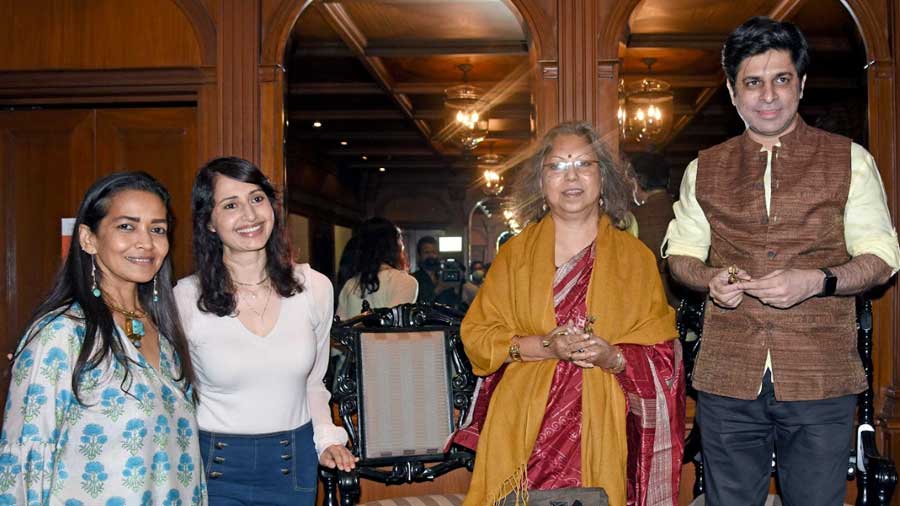
(L to R) Esha Dutta, Debasree Nazir, Ratnottama Sengupta and Vaibhav Purandare Amit Datta
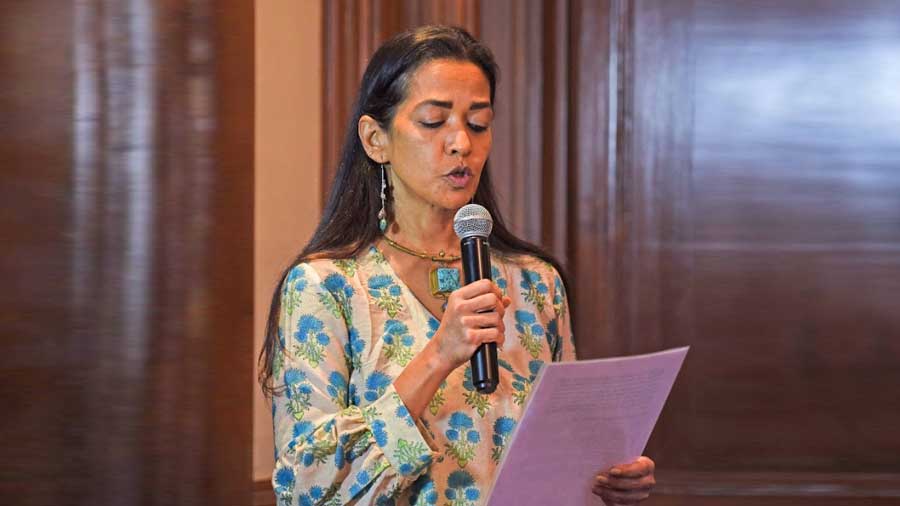
Esha Dutta Amit Datta

Just calling the session an ‘interesting’ and ‘engaging’ one is putting it really mildly. There’s history that is taught to you in schools, there’s history that you read about in books, but there is this history… which everyone doesn’t hear about… and this is the version of history which everyone should know, and it’s books like this which do it. To have a book like this which tells us all the inner stories which we grew up learning a very different version of, that’s what makes this so interesting. This entire session was a learning experience.
Esha Dutta, Ehsaas Woman of Kolkata
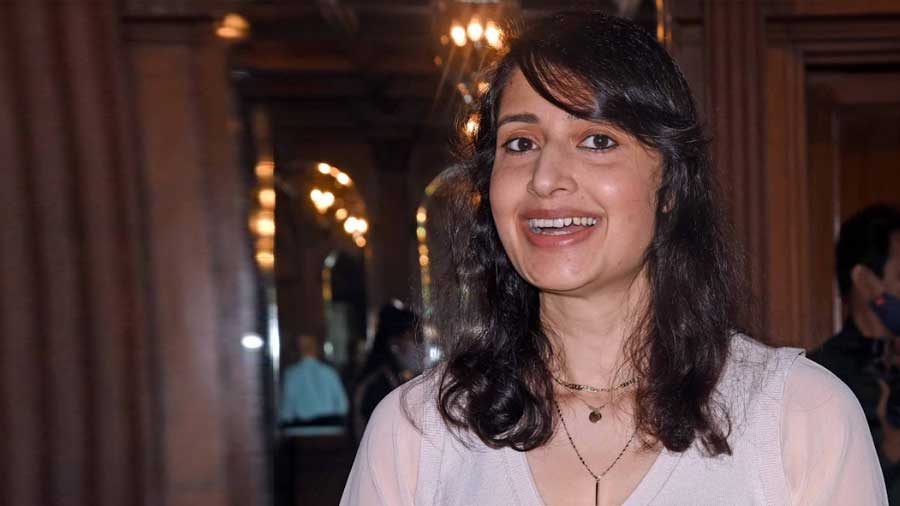
Debasree Nazir Amit Datta

I liked that international, modern aspect of history and the way he spoke about Hitler, Gandhi, everyone... So it was a really knowledgeable session.
Debasree Nazir
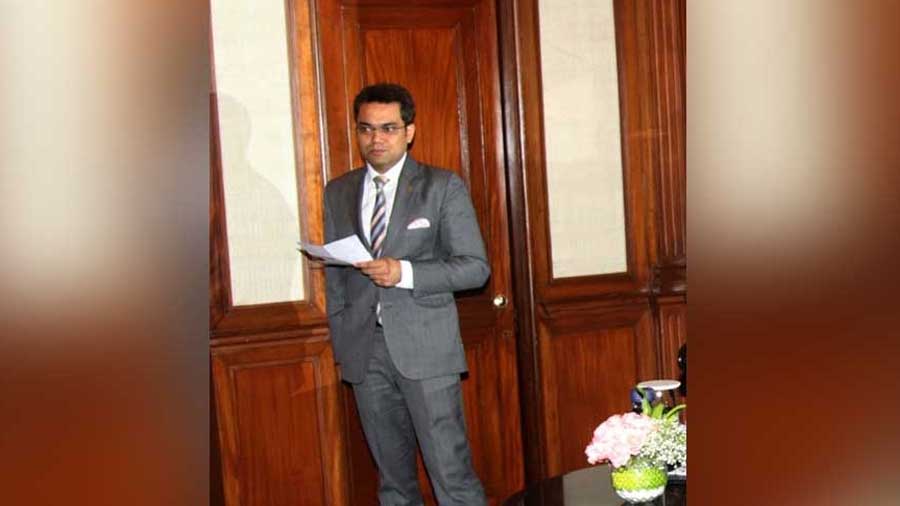
Farhan Khan Amit Datta

